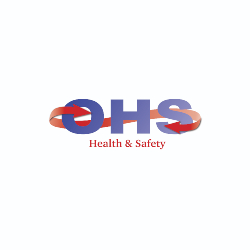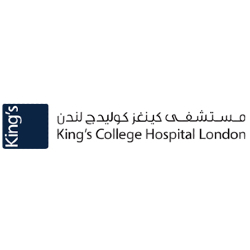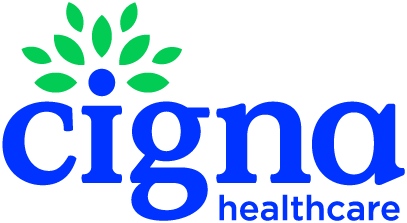How to comply with UAE HSE Law including COVID-19 protocols
Date Posted:Thu, 6th May 2021

Most companies are concerned about returning to what they would think of as "normal?, which of course varies greatly between different companies and sectors. Whilst many employers are now comfortable with employees working from home, others feel that resuming face-to-face interaction is essential, particularly if there's an operational element to their activities.
So what questions should employers be asking or be thinking about as they return to work ? And what are the concerns of their staff - many of whom will be wondering about what their employer will be doing to protect their health and safety ? Communication at this time of uncertainty is critical to let the employees know that they are going to be safe when they come back and how they are going to be kept safe.
General procedures are in place that may be followed to help ensure work is conducted as safely as possible for both the company and employees. In addition to the Government issued guidelines and updates which must be followed and complied with, a risk based approach via risk assessment should also be followed.
Every workplace should have a COVID-19 Risk Assessment that is regularly reviewed as circumstances change. Your risk assessment should identify what work activities may cause transmission of the virus, think about who could be at risk, decide how likely it is that someone could be exposed and act to remove the risk or, if this isn’t possible, control the risk.
This risk assessment should be reviewed and updated if any of the following occur:
- Any of the staff gets infected in the workplace
- New control or precautionary measures are introduced by authorities
- Change in work routine or pattern due to changing pandemic circumstances
- Change in requirements by any stakeholders, such as suppliers or customers
- The pandemic situation changes positively or negatively
Control measures that may be introduced as a result of the risk assessment include:
- Social distancing, e.g. using floor tape to mark work areas, providing signage to remind people to keep a 2m distance, limiting the movement and interaction of people
- Ensuring the adequate ventilation is provided via either natural ventilation, mechanical ventilationusing fans and ducts or a hybrid mixture of both
- Frequent cleaning to ensure often touched surfaces such as doors, bannisters and buttons receive more regular cleaning than normal
- Encouraging good hand hygiene by providing handwashing facilities with running water, soap and paper towels, hand sanitiser at locations in addition to washrooms
In addition to complying with COVID-19 protocols, organisations operating in the UAE must also be aware of the current Federal Laws and other HSE legislation which may be in place specific to the Emirate or FreeZone in which they operate. Not understanding health and safety laws may leave a company exposed and liable to criminal and civil prosecutions.
Health and safety law mainly concerns Labour Law (Federal Law No. 8) together with supplementary Ministerial Decisions. There are further regulations in place that the employer must consider if relevant to the sector in which they operate. For example, if the company operates in the mainland Emirate of Abu Dhabi then the Abu Dhabi Occupational Safety and Health Center (OSHAD), will require a company to follow their requirements. TRAKHEES is the regulatory arm of the Ports, Customs and Free Zone Corporation (PCFC) in Dubai and the authority responsible for licensing and regulating businesses in certain development zones and areas. If an accident occurs within a Free Zone or within a Trakhees governed area it still falls under the jurisdiction of Dubai Municipality who will investigate.
What are an employers' general obligations?
- Provision of training to employees to prevent against work injuries, occupational diseases, fire risk, risks associated with the use of machinery and general hazards associated with their employment. Some accredited training is mandatory also – such first aid
- Displaying health and safety requirements clearly on site in both English, Arabic and any other language understandable by the employees
- Provision of the necessary control measures to protect employees from occupational hazards including; provision of safety clothing, provision of appropriate equipment and tools for personal protection, setting up safety barriers around hazardous equipment and machinery, taking necessary precautions regarding the storage and disposal of hazardous materials
- Reporting to the Ministry of Labour any accident or incident at work resulting in an employee's death or occupational disease, or that involves fire or explosion, or which renders an employee unable to attend work for three consecutive days (Article 24 of Ministerial Decision No. 32/1982)
- Ensuring a trained first-aider is available to provide first aid assistance and that every first aid kit includes specified contents (Article 4 of Ministerial Decision No. 32/182)
- Ensure workplaces are kept clean, ventilated, illuminated, have provision of rest and eating areas, potable water and toilet facilities (Article 5 of Ministerial Decision No. 32/1982 and Article 2 of Ministerial Decision No. 27/1/1981)
The company’s in house HSE Manager, or an HSE Consultancy such as Corporate OHS, would assist the company to:
- Assess the company work activities and develop a Legal Risk Register showing where compliance to health and safety law must be applied relative to the company work activities
- Work with employees to assist them in undertaking risk assessments, identifying all significant hazards, evaluating these hazards and recommending adequate control measures
- Assist in the development of safe systems of work and standard operating procedures to control specific work activities
- Developing and implementing a reporting mechanism to address HSE issues raised by employees
- Assisting employees to conduct a Fire Risk Assessment and the subsequent development and implementation of emergency procedures, including evacuation plans
- The above measures are the basis for the development of a health and safety management system, such as ISO 45001, which will demonstrate the companies commitment to complying with health and safety law
What may be the consequences of failing to comply with UAE HSE law ?
- Criminal charges, the police will conduct a formal investigation into an incident and retain the passports of any employees they consider responsible for the incident. If referred to the public prosecutor and then criminal court, a minimum penalty of at least one year's imprisonment and a fine may be imposed
- Civil compensatory damages, subject to the nature and severity of the incident
- Liability to pay blood money (Diya) Where there is a fatality at work in addition to statutory compensation - under UAE law equivalent to 24 months' basic salary at the time of death (Article 149 of UAE Labour Law) and/or civil compensatory damages
- Liability to pay compensation for various other disabilities or partial disabilities (Article 150 of Federal Law No. 8)
- Ministry of Labour Inspectors can enter and inspect workplaces at any time without prior notice and impose any measures aimed at averting any danger or risk to employees. This may occur regardless of whether a workplace accident has occurred or not.
Caroline Savage is General Manager, Corporate OHS – Health and Safety Consultancy.











